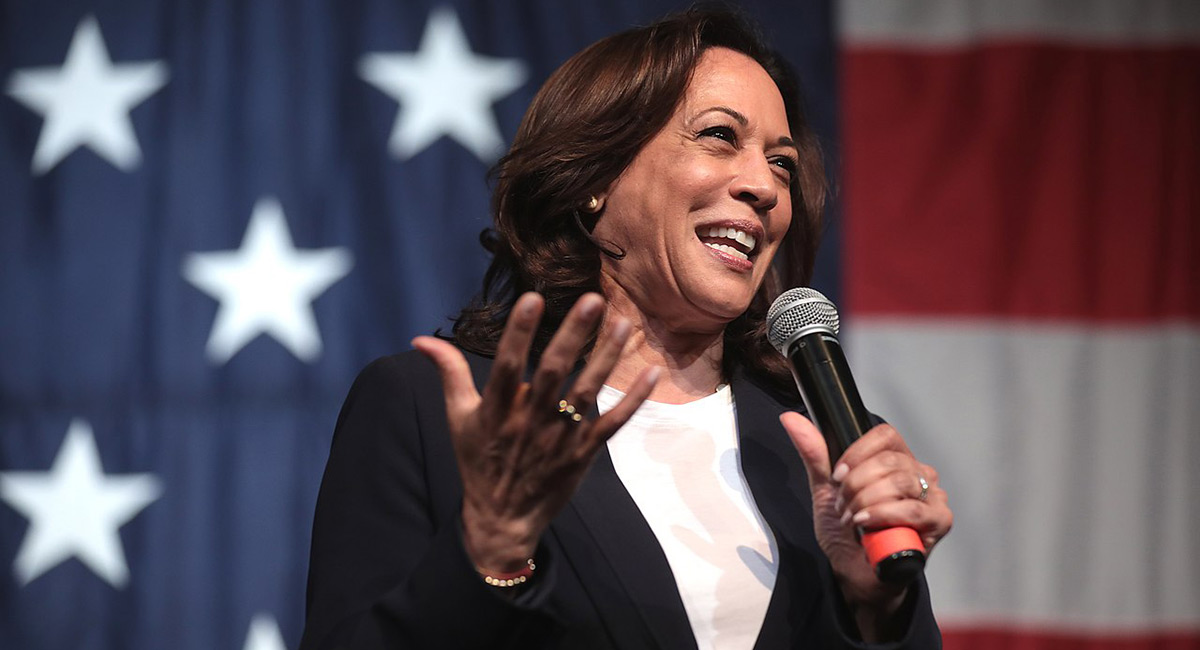While under anesthetic for a colonoscopy on November 19, Joe Biden handed the reins of power to Kamala Harris, for 85 minutes the most powerful person in the world. That same Friday, a Wisconsin jury declared accused murderer Kyle Rittenhouse not guilty of all charges. Later that night, Harris tweeted, “Today’s verdict speaks for itself. I’ve spent a majority of my career working to make our criminal justice system more equitable. It’s clear, there’s still a lot more work to do.”
Harris, a U.C. Hastings law grad, is the former attorney general of California. She mentioned none of the evidence in the Rittenhouse case and no revelations from the trial. As the proceedings confirmed, Kyle Rittenhouse had not carried an illegal weapon across state lines to attack peaceful protesters. He was protecting life and property and came under attack from armed, violent rioters.
Judge Bruce Schroeder tossed the weapons charge. That effectively upheld the Second Amendment right to keep and bear arms and the basic human right of self-defense. Absent his rifle, Rittenhouse would have been carried by six instead of being judged by twelve.
By claiming there’s “more work to do” for an “equitable” justice system, Harris effectively disagrees with the verdict. That invites a look at her experience as state attorney general and district attorney of San Francisco. Backed by former boyfriend Willie Brown, the powerful Assembly speaker who appointed Harris to lucrative sinecures, Harris unseated Terence Hallinan in 2003.
The next year, gang member David Hill deployed an AK-47 to gun down San Francisco police officer Isaac Espinoza. Under a California law passed in 1973, criminals who murder police officers are eligible for the death penalty. At a memorial service for the slain officer, Sen. Dianne Feinstein, said, “This is not only the definition of tragedy, it’s the special circumstance called for by the death penalty law.”
The San Francisco Police Officers Association wanted Harris to seek the death penalty for Hill, but the district attorney declined and instead pursued a life sentence. Harris never spoke to Espinoza’s widow Renata about that decision, and, according to Renata, Harris “never came over and said ‘I’m sorry for your loss.’ Never. Nothing.”Attorney General Harris targeted for-profit colleges, supported gun control, and looked the other way at government corruption. In 2014, California’s attorney general kept quiet when Mexican national Luis Bracamontes gunned down police officers Danny Oliver and Michael Davis in Sacramento. In 2015, repeatedly deported Mexican felon Jose Inez Garcia Zarate shot and killed Kate Steinle on a San Francisco pier. Attorney General Harris defended the city’s sanctuary policy and failed even to decry “gun violence” in the case.
That same year, Syed Farook and Tashfeen Malik killed 14 unarmed innocents and wounded 22 at an office party in San Bernardino. A year later, Harris issued a statement on the “devastating and tragic terrorist attack” but failed to name a single victim or the terrorists who shot them dead. None of these cases changed Harris’s view on criminal justice.
“We are talking about a system that creates a final punishment without any requirement that there be DNA to prove it,” Harris told reporters as she campaigned for the Democrats’ presidential nomination. “It is a system where it has been fundamentally proven to be applied to African American and Latino men and poor men disproportionately for the same kind of crime.”
According to the proportionality doctrine, the system must reflect the ethnic proportions of society, and if not, the cause can only be deliberate bias. As Thomas Sowell has often noted, nothing in society reflects ethnic proportionality, a leftist superstition not found in the Constitution or in law.
Personal differences, effort, and choice cause variations in outcome, even in the same groups. People in all ethnic groups are prosecuted in the proportion to which they commit crimes, and according to the evidence in their case.
The composite character David Garrow described in Rising Star: The Making of Barack Obama once called Kamala Harris “by far the best looking attorney general in the country.” That is a matter of debate, but there’s no question that Harris is a true believer in the proportionality dogma, which is not law and no basis for justice.
As it turns out, Kamala Harris may be the one with “more work to do.” This month, only 28 percent of Americans approve of Harris’s job performance, lower than Joe Biden, now down to 36 percent.








